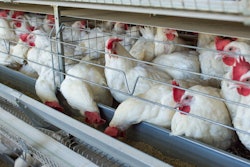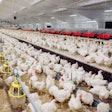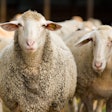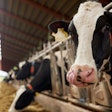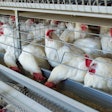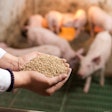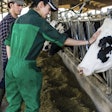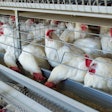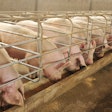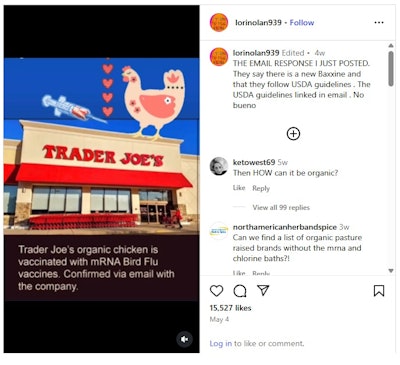
A viral social media post suggested that Trader Joe’s is selling chicken vaccinated with an mRNA vaccine against highly pathogenic avian influenza (HPAI).
There’s a problem with the claim, which quickly amassed 1.1 million views on X, Facebook and Instagram. The U.S. hasn’t approved avian flu vaccination in commercial poultry, primarily due to concerns about how it could impact trade with other countries.
Trader Joe's refuted the claim. In an e-mailed statement to WATTPoultry, a company spokesperson said: "We are aware that inaccurate information about the use of mRNA vaccines in poultry is spreading through social media channels. We want to be sure our customers have accurate information to make informed buying decisions.
"What is true is that none of our poultry is given mRNA vaccines. Also, please note that no mRNA vaccines are currently approved for administration to animals in the U.S."
I’ll also add that while there is an HPAI vaccine for commercial poultry from Zoetis that received conditional approval from the U.S. Department of Agriculture (USDA) Center for Veterinary Biologics (CVB) earlier this year, it has not yet received final approval from the USDA and is not an mRNA vaccine.
Moderna did have a contract to develop an avian flu vaccine for people that used the same mRNA technology as it’s COVID-19 vaccines, but that was canceled by the U.S. Department of Health and Human Services (HHS) in May. At the time, HHS called mRNA technology “under-tested” and cited “legitimate safety concerns.”
HPAI consumer misinformation is widespread
U.S. consumers are largely misinformed about the effects of HPAI on the chicken supply chain.
According to a March 2025 survey from the University of Michigan Health C.S. Mott Children’s Hospital National Poll on Children’s health, fewer than half of respondents feel that they can find accurate information about HPAI and most indicated that they were unsure of whether there have been bird flu cases recorded in their states.
While social media can be a powerful communication tool, these facts show that the broiler industry needs to also be quick to counteract misinformation.
During a panel discussion at the 2025 Chicken Marketing Summit, held at the DeSoto Savannah in Savannah, Georgia, on July 28-30, 2025, a panel of experts will discuss the economic impacts of HPAI, how the industry is leveraging technology to stop its spread and how sales and marketing can proactively address consumer concerns and misinformation to build consumer confidence and mitigate long-term risks associated with public uncertainty.
Confirmed panelists:
- Rob Levine, partner/president, Marriner Marketing
- Brian Earnest, lead economist, animal protein, CoBank
- Brian McCluskey, DVM, Ph.D., director, Lonestar Epidemiology Consulting
Registration for the Chicken Marketing Summit is now open at www.chickenmarketingsummit.com.
Attend the 2025 Chicken Marketing Summit
The 2025 Chicken Marketing Summit will be held at the DeSoto Savannah in Savannah, Georgia, on July 28-30, 2025. This one-of-a-kind event will feature two content tracks. The first will focus on consumers and how technology impacts them, while the second will look at the impact new technologies have from an operational standpoint for chicken companies, retail and foodservice.
Serving a unique cross-section of the chicken supply chain, the Chicken Marketing Summit explores issues and trends in food marketing and consumer chicken consumption patterns and purchasing behavior.
Registration is now open.





